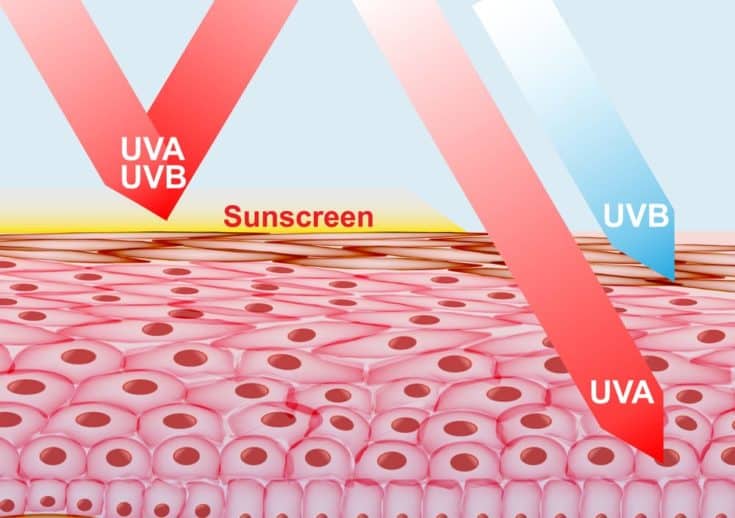No matter what season it is, sunscreen is considered a must for protection against harmful UV rays. As increasing amounts of research and clinical studies show; the harmful UV rays that are emitted by the sun cause many harmful and fatal diseases. One of the most common and dangerous diseases associated with harmful UV rays is skin cancer.
Dermatologists and experts greatly emphasize the use of sunscreen in order to prevent illnesses and complications such as skin cancer. However, many studies are now also looking into the negative side effects of chemical-based sunblocks. Due to the negative side effects that have been brought to light about chemical sunblocks, now people are shifting towards “natural sunscreens”.
What are Natural Sunscreens and How Do They Work?
Even before we can discuss whether or not these sunblocks work, it is important to understand what the term “natural sunscreen” means. This is a slightly ambiguous and misleading term.

There is much confusion these days in regards to the active ingredients which are present within the sunscreen and which sunscreens are effective and which are not. However “natural sunscreen” is not the term that dermatologists use.
The reason for this is that there are no legal standards for the term “natural” when it is applied to personal care products. So, when companies refer to natural sunblocks, they are generally referring to the ones that are made with a mineral base.
The mineral-based sun blocks are generally comprised of active ingredients such as zinc oxide and titanium dioxide. These active ingredients work by either breaking down, scattering or deflecting the sun’s harmful UV rays.
However, prior to being used in sunscreen these minerals are processed and refined into compounds that are not found in nature. Due to this, it can be argued that claiming they are natural is a slight exaggeration.
Do Natural Sunscreens Actually Work?
As stated above the ingredients found in organic sunblocks do scatter and deflect the sun’s UV rays. However, the degree to which they are effective in protection against these UV rays is debatable.

Consumer reports of sunscreen testing were conducted, and it was discovered that only twenty-six percent of these sun blocks matched up to the claims they made about their SPF. This is in comparison to chemical sunscreens of which fifty-eight percent met their SPF claims.
In addition to this dermatologists do claim that although natural sunscreens do work, they only work if they are used in the right way. Most of the issues and causes for the ineffective use of these sunscreens is that they are used incorrectly.
One of the key factors is that people tend to not use enough of these sunscreens, which leads to ineffective protection against the UV rays. The consistency of organic sunblocks tend to be thick, goopy, and white, which also deters people from using a generous amount. In comparison to this people tend to prefer the texture and feel of chemical-based sunscreens.
Bottom line, there are plenty of reasons to use this product. When it comes to natural sunscreens more is better as it decreases the chances of exposure to harmful UV rays. In addition to this natural sunscreen should be reapplied after exposure to water and also after every two hours. This the frequency recommended by dermatologists in order to try and maximize the effectiveness of these sun blocks.
Conclusion

The use of sunscreen is very important in the prevention of skin diseases such as skin cancer. Although, natural sunscreens do work they can be less effective due to certain factors such as insufficient application. It is best to apply generous amounts and reapply after exposure to water for effective protection against UV rays.
The post Do Natural Sunscreens Work? appeared first on Better Mind Body Soul.
No comments:
Post a Comment